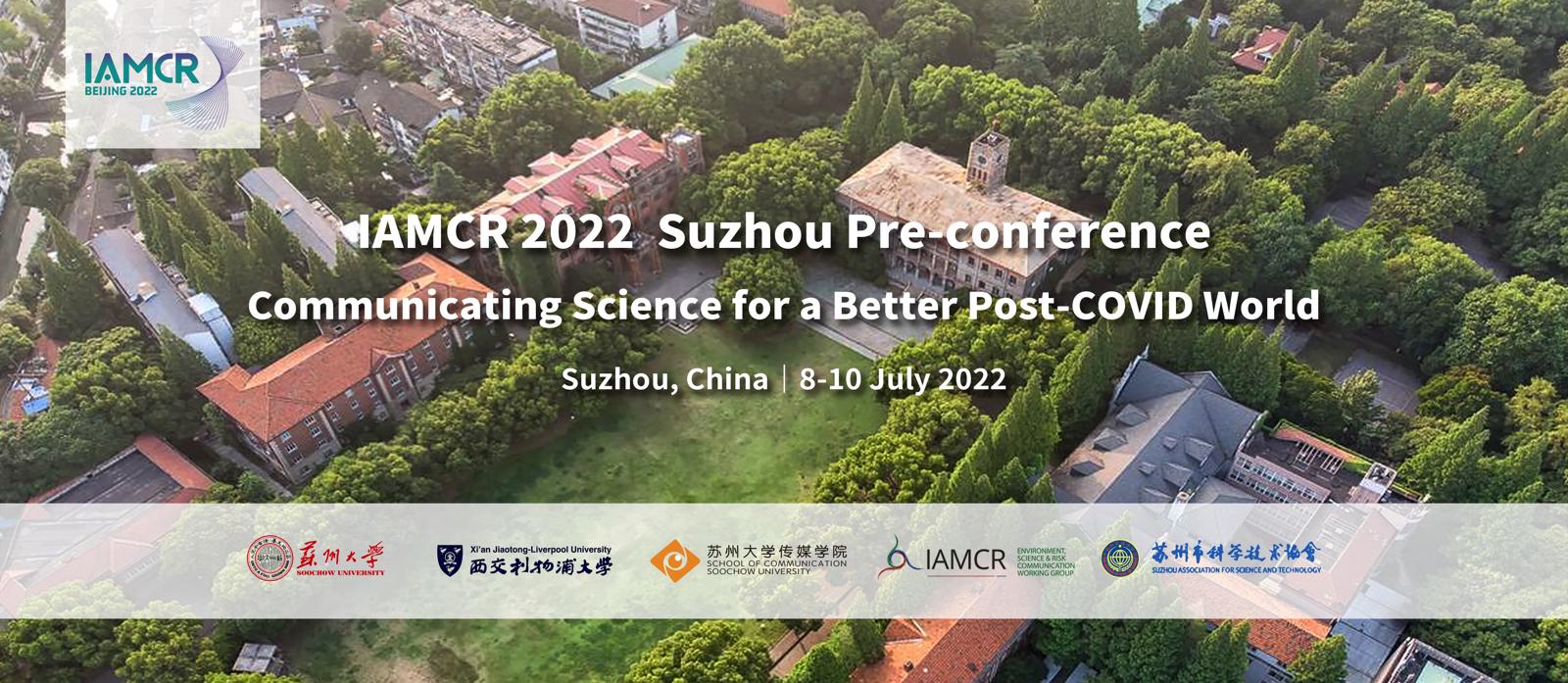China Science Daily: Special Forum on Public Scientific Quality and Public Health Crisis Response
"Hard Core" Scientific Knowledge is Helpful to Rational Epidemic Prevention
The Special Forum on Public Scientific Quality and Public Health Crisis Response was Held
Source: China Science Daily Release date: December 7, 2020 Author: Lifei Feng
Original link:https://news.sciencenet.cn/htmlnews/2020/12/449779.shtm
On December 6, the special forum on "public scientific quality and public health crisis response" of the 2020 world public scientific quality promotion conference hosted by China Association for science and technology was held in Beijing. Domestic surgical communication scholars from Soochow University, Beijing Jiaotong University, Cornell University and other institutions, In depth discussions were held on how scientific quality can promote the public to actively respond to the epidemic and other issues.
"Hard core, factual scientific knowledge can help people take more reasonable preventive actions." At the forum, Yajie Chu of the school of journalism of Fudan University said in the report. Based on a questionnaire survey of 3000 people (representing China's netizens structure) launched in March this year, she and her collaborators also found that in addition to the significant differences in scientific knowledge level (including COVID-19 knowledge), the public population in China has great differences in the ability to identify false information. The higher the level of subjective perception knowledge, the more people tend to take excessive epidemic prevention measures, such as "self taking antiviral drugs" and "increasing vitamin C intake".
COVID-19's global pandemic and the consequent information of various kinds of false outbreaks have become a hot topic for scientists to interact with the public and enhance their scientific literacy. "There are the same rumors in the United States, such as where the virus comes from." Bruce Lewenstein, a professor of science communication at Cornell University, said in an interview with China Science Daily, "At this time, when scientists communicate with the public, they must know what the boundaries are. Their views should be based on universal knowledge and personal judgment. The important thing is to build trust with the public. Trust is an important basis for disseminating information and correct information."
The forum also reported that the public's enthusiasm for anti epidemic measures is also related to their trust in the country. A study by Professor Hepeng Jia of the school of communication of Soochow University and Dr. Xi Luo of the school found that the public's feelings for the country and their satisfaction with the national anti epidemic performance were significantly related to whether they wore masks and consciously practiced social distance and other anti epidemic measures. Relevant research also found that the more Chinese people believe in scientists and doctors, science and mass media, the more willing they are to take active anti epidemic measures.
Not only in China, this trust has a similar impact on Chinese Americans during the epidemic. Dr. Shuo Zhou of the school of public health of the University of Colorado found that Asian Americans have the lowest positive case rate in the United States when studying the risks and pressures brought by the new crown to American minorities. In this regard, another study by hang Lv, an assistant professor of the Department of media at the University of Michigan, found that this has something to do with the media literacy of Chinese people in the United States. The study found that if Chinese in the United States mainly read Chinese media, they are more willing to actively take protective measures. If you read American media, this will weaken.
The forum also focused on the impact of national epidemic prevention policies and measures on changes in public behavior, as well as other health communication issues. For example, Guoyan Wang of the school of communication of Soochow University and his collaborators collected big data on epidemic prevention policies and measures and public behavior in China, Italy and the United States at the beginning of the epidemic this year. They found that the strict travel restriction measures have short-term and long-term effects. In the short term, it will lead to the instantaneous outflow of population in the areas where the epidemic exists, and the long-term measures will significantly reduce the population flow, which is conducive to the control of the epidemic. In addition, Jingxi Chen, an associate professor at Beijing Jiaotong University, found that the news report presentation of cervical cancer virus vaccine interacted with the cognition of female audiences, and a new social interaction relationship was formed between picture information and picture readers.
This special forum is part of the 2020 world public scientific quality promotion conference. The forum was hosted by Soochow University and co organized by the school of language and communication of Beijing Jiaotong University. The forum attracted more than 3000 people online and offline.
Important Dates
April 15, 2022
May 1, 2022
July 8-10, 2022

 京公网安备 11010802039275号
京公网安备 11010802039275号